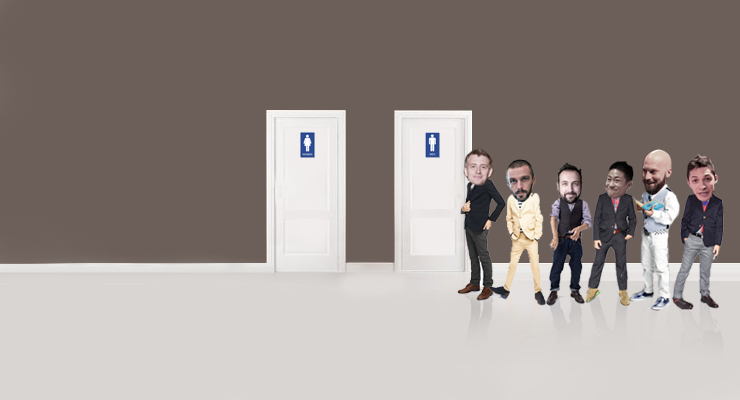It’s a commonly held belief coffee causes dehydration, but is there any truth to that? That is the question Sophie C. Killer, a UK grad student, posed in pursuit of her doctorate in sports, exercise and health sciences. She presented her research at the ASIC 2014 scientific conference in Colombia. There have been studies that look at caffeine and dehydration using only caffeine pills, energy drinks, or caffeinated sports or soft drinks, but Killer wanted to examine how coffee affects our hydration levels, specifically through urination.
Her study, entitled “No Evidence of Dehydration with Moderate Daily Coffee Intake: A Counterbalanced Cross-Over Study in a Free-Living Population” does just that.
That taking a caffeine pill or imbibing an energy drink is likely to make you pee more isn’t really that surprising, is it? But what about daily coffee drinkers? Should we be drinking more water to make up for drinking our morning cuppa or after sipping an espresso in the afternoon? Killer and her team took a different approach to answering it than many previous researchers did. They looked at whether or not urination increases for regular coffee drinkers by using—shocker—actual coffee.
Killer wanted to replicate as closely as possible real-life conditions. In her “free living population,” the 50 male participants did not taper off of coffee before data collection began. Instead, her team actually gave the guys a regular dose based on each subject’s individual body weight and coffee consumption patterns. Her study used all the participants as their own controls, meaning that for one of two three-day periods, each man drank coffee or water. Then, after a washout period that occurred in the middle of the study, the subject switched trial conditions, from coffee to water or vice versa depending on which he started with.
For anyone who has been in a scientific study that lasts more than a day or so, “free living” sounds great: You get to go home at night and sleep in your own bed; You can keep your typical work or study schedule after making some temporary adjustments to keep appointments with the researchers. But it also means that to help Killer and her team monitor your dehydration levels, you had to collect your own urine. That’s a bit of style-cramper. (”No, really, I’m not carrying my own urine around because I couldn’t find a toilet…I do this for science.”)
The men involved in the study also had to adhere to a strict diet. The researchers provided all food, water, and coffee based on a pre-study analysis of each participant’s eating and drinking habits. A daily blood draw on each of the trial days enabled the researchers another way to test whether coffee was having a dehydration effect and to make sure study participants were not “cheating” by drinking more or less coffee than they were provided.
The results of the study add to a growing body of evidence that drinking coffee is not bad for us. By us, of course, I mean men who regularly drink moderate amounts of coffee. Killer acknowledged that her funding and the amount of time available for her work meant excluding women, in whom measuring the effects of coffee may be more complicated. (In fact, scientists are still grappling with how to account for or control the effects of hormonal swings in physiological studies including women.)
Two of Killer’s additional findings worth noting are: sodium levels were higher in urine for days on which the participants drank coffee, and the men lost a small amount of weight in both trial conditions. But based on these results, does coffee cause dehydration? Killer says no—a result we can raise a cup to.
You can read all the details of Killer’s study for yourself in the open-access PLOS ONE journal.
Jenny Neill is a Sprudge contributor based in Seattle. She writes about beverage and travel at jennyneill.com. Read more Jenny Neill on Sprudge here.




